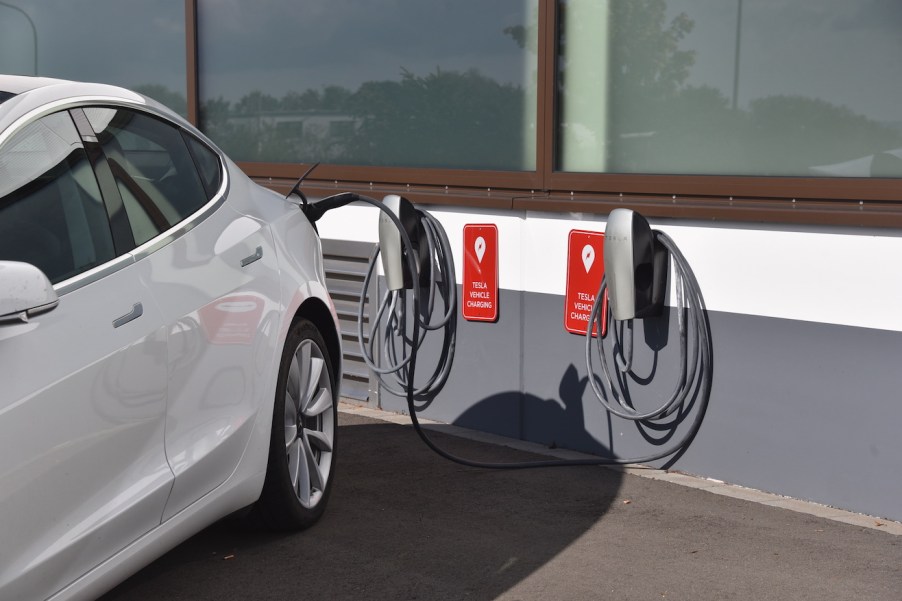
Is Charging an EV Cheaper Than Putting Gas?
More automotive companies are producing electric cars, SUVs, and even trucks nowadays. But people are a little hesitant to get on board because of the cost to buy an EV. Potential customers want to know if they could justify their investment in one of these vehicles.
When you look at the costs, you could save on fuel, alone, you just might change your mind. Kelley Blue Book explains how to calculate the costs of electricity to charge your car vs the price of fuel at a gas station.
The fueling costs for a gas-powered vehicle
Prices for fuel vary all over the country, but Kelley Blue Book uses an average cost to help show the difference between charging and fueling. Using the average price of $2.88 a gallon of gas, a typical vehicle could cost around $34.50 to fill it up.
According to their example, you would visit the gas station at least three times a month, filling up with the same amount. By the end of the month, you would pay approximately $103.50 total for all three fueling stops.
The cost of charging an EV
If you own an EV, prices would look vastly different. To determine how much it would cost to charge it at home, you can check your electric bill. Find out how many kWh you used in the previous month and divide it by the amount you paid on the bill.
They base their example off of 1,000 kilowatt hours used and $100 paid for that usage. Divide 1,000 by 100. The price per kWh you pay, based on that example, is 10 cents.
Now, normally an EV drives 3 miles per kWh. Tally up the total miles you drive in one month and divide that number by 3. Then multiply it by 10 (the amount you pay per kWh to charge). So, basing it off 1,000 miles driven, you pay around $33 a month to charge the vehicle.
That’s about $70 less than fueling up a vehicle. Of course, you won’t always see that amount of savings. If you pay double the amount used in this example, it would still be far less than putting gas in your car.
The different levels of charging
They base the example, used above, on a Level 1 charging unit, which is your normal household electrical service. There are also Level 2 and Level 3 systems that will charge your EV even faster but will cost significantly more to run.
You can have a Level 2 system installed in your home, but it could cost you quite a bit to have it installed. According to Edmunds, the price could be as high as $2,300 for parts and installation. If you choose to go solar-powered, then expect to pay around $7,000 or more.
You will only find Level 3 systems in supercharging stations sprinkled throughout the country for charging while you’re on the go. Tesla, the most popular electric vehicles on the market, has several charging stations strategically placed within each state.
The price to charge up at one of the charging stations varies as well. Typically, they charge by the hour, but sometimes you can purchase a monthly membership. But, keep in mind, the faster it charges, the more money it will cost you.
Today, there are several automakers offering EV cars. Nissan has the Leaf, Porsche has the Taycan, and there’s also the Kia Niro EV to name just a few. The cost of buying an EV car may make you nervous, but the money you’d save on fuel would be worth it.


